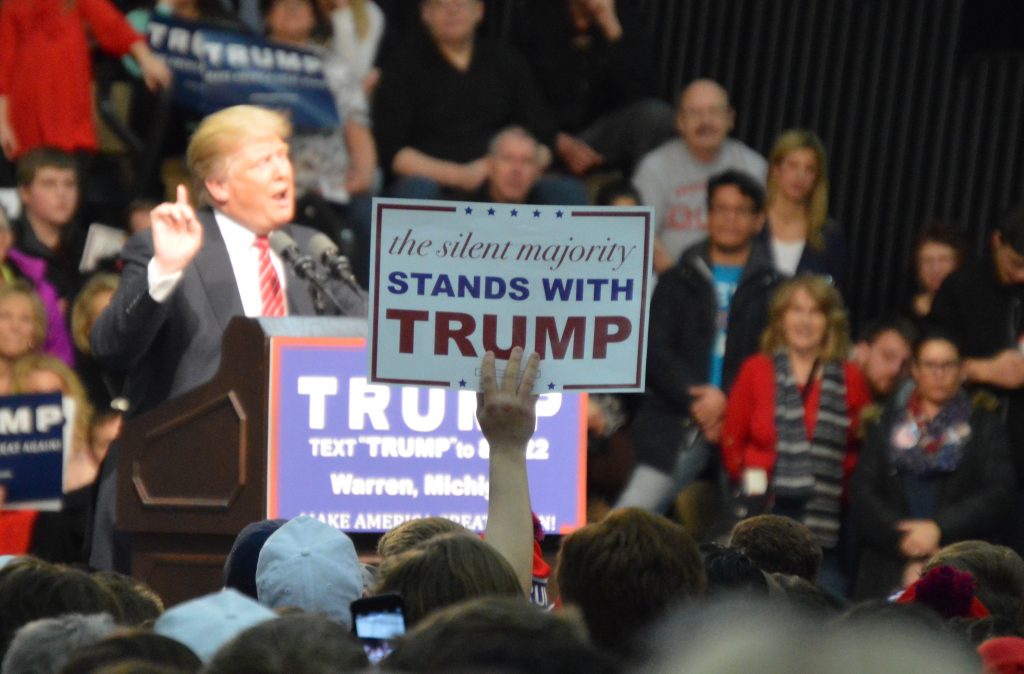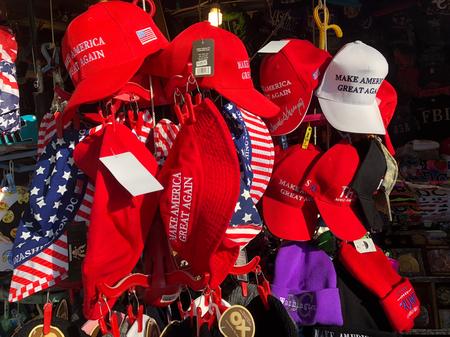Here’s Why Republican Support of Trump is So Strong
“It’s less Trump than factors that predate Trump,” says Adam Serwer, staff writer at The Atlantic.


President Trump’s troubles have only gotten deeper since he took the oath of office. And yet, his approval rating among Republicans has consistently stayed close to 80 percent or higher in most polls.
Tuesday morning on WDET’s Detroit Today with Stephen Henderson, Republican Congressman Fred Upton of West Michigan came very close to being the first Republican in Congress to come out in support of the formal impeachment inquiry against President Trump.
When asked whether he supports the impeachment inquiry into the president, Upton told Henderson, “Yeah, I want the answers to the questions that need to be raised.”
But his office immediately walked the comment back, saying Upton does not support the inquiry.
This is a great illustration of a major problem in the efforts to hold Trump accountable for just about anything. No matter what Trump does, or says, Republicans display a rock-solid unwillingness to distance themselves from the president. Why is that? And is it as out of the ordinary as it seems?
Adam Serwer is a staff writer for The Atlantic, who recently wrote an article titled, “Why Republicans Aren’t Abandoning Trump.”
“It’s less Trump than factors that predate Trump,” says Serwer on Detroit Today with Stephen Henderson.
“One side can view the other side as illegitimate because of its constituencies,” says Serwer on Detroit Today. “This is not a particularly partisan thing. It happens whenever one particular party becomes racially homogeneous and the other becomes diverse, they start to view the diverse party as illegitimate. Once upon a time it was the Democrats, today its Republicans. And you can see that in the measures they take to prevent the other party from, not simply doing what they want, but ever holding power in the first place.”
In The Atlantic, Serwer writes:
“The president used his authority to criminalize or suppress his political rivals, in violation of the people’s right to choose their leadership. His acts exemplify the scenario the Framers feared when they contemplated a corrupt president using executive power to keep himself in office, unaccountable to the people who elected him. Trump’s conduct here is not just impeachable; it is why the impeachment clause exists.
“What the Framers may not have contemplated, however, is the extent to which a demagogue is capable of convincing his supporters that the president and the people are one and the same, and therefore, the president is incapable of betraying the people, because he is their purest expression made flesh. Trump is but a crass distillation of this anti-democratic idea, but if it were not deeply rooted in the Republican Party, he could never have ascended to its leadership.”
Michigan Republican political consultant Dennis Darnoi, who studies voter trends and data, says Trump’s popularity among GOP voters can in part be explained by media coverage.
“The coverage from a conservative viewpoint isn’t so much what Trump said or did, it’s trying to poke holes in the theories that exist,” says Darnoi on Detroit Today.
